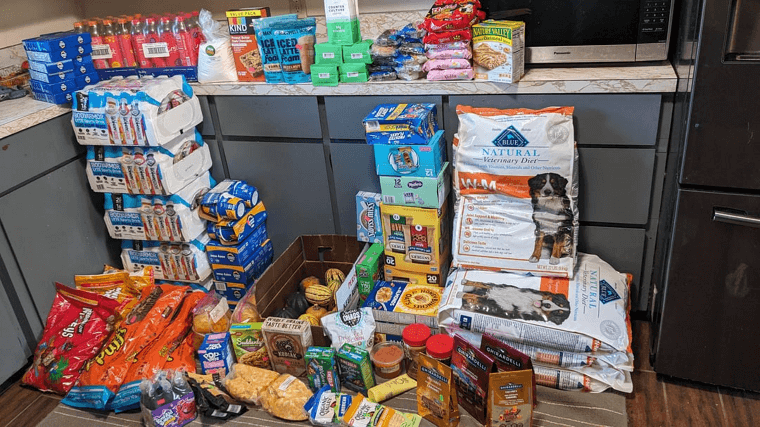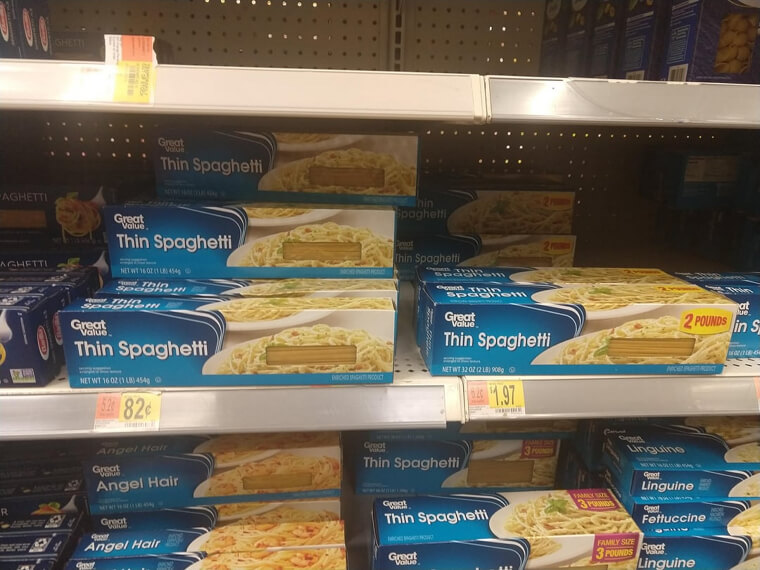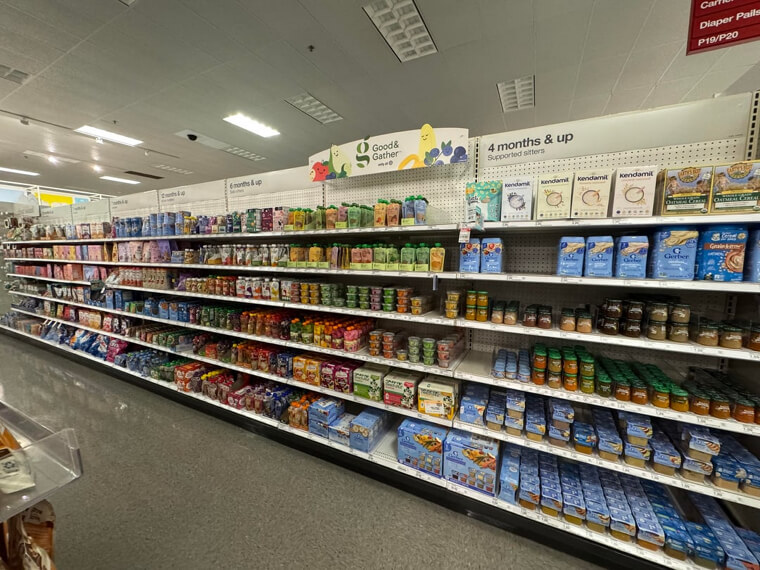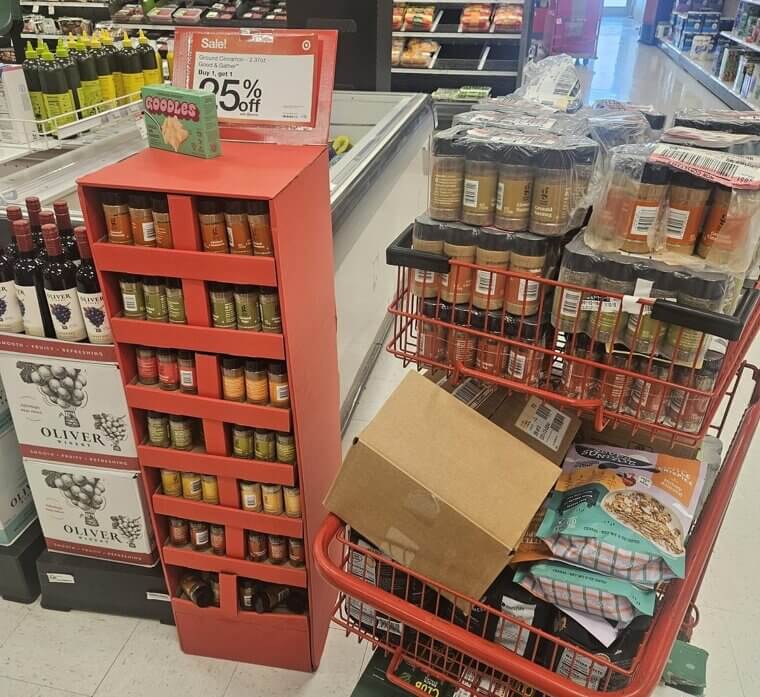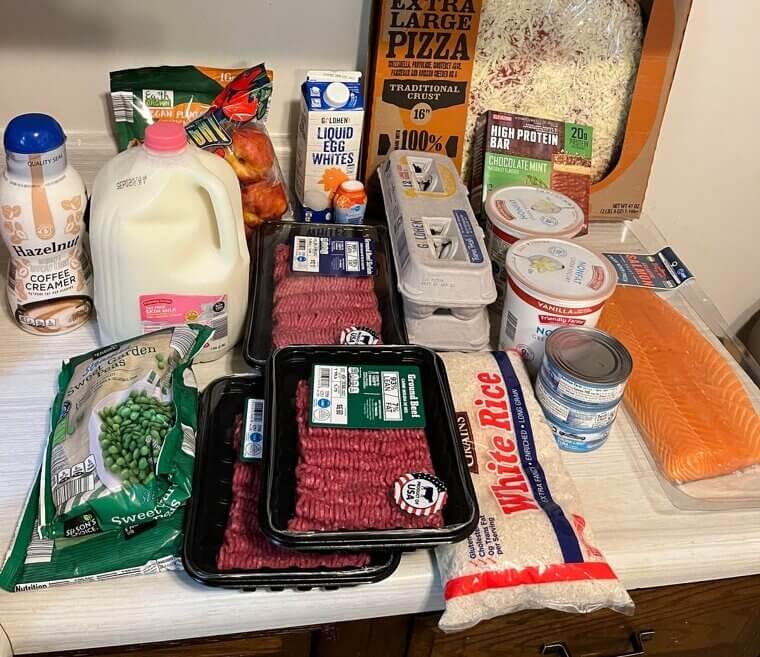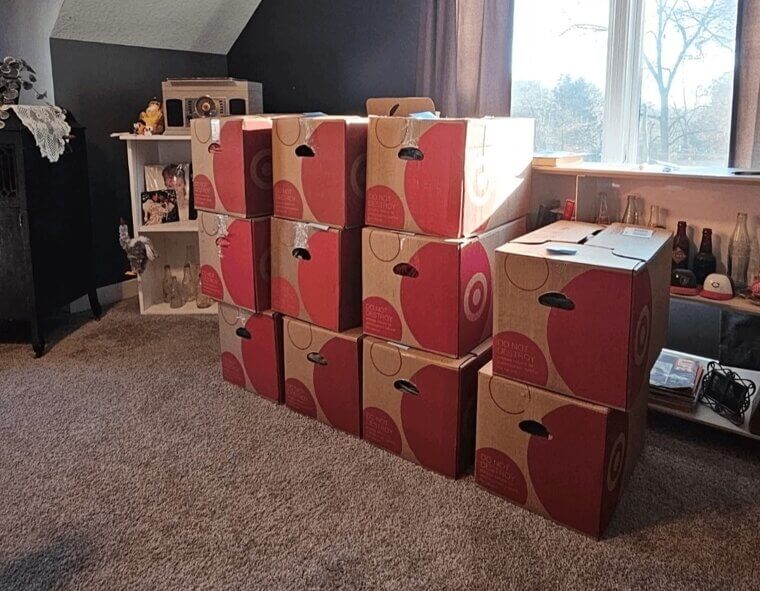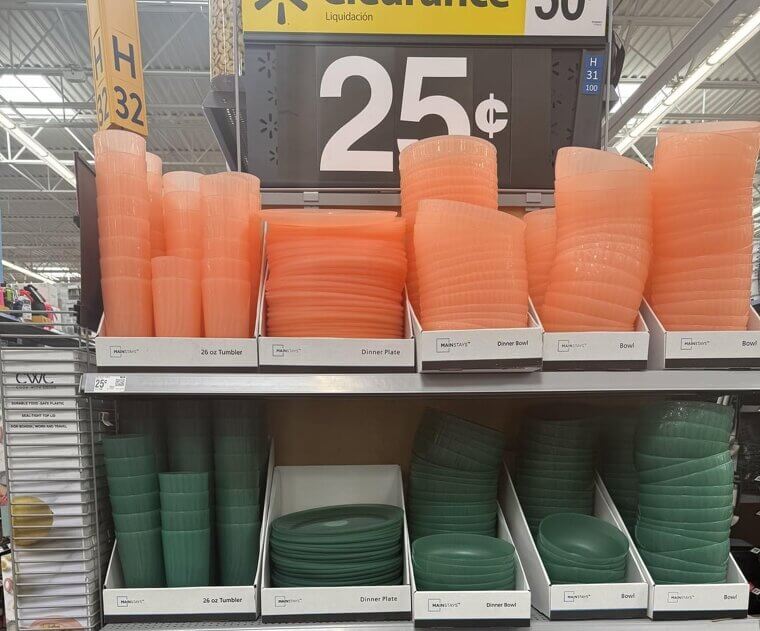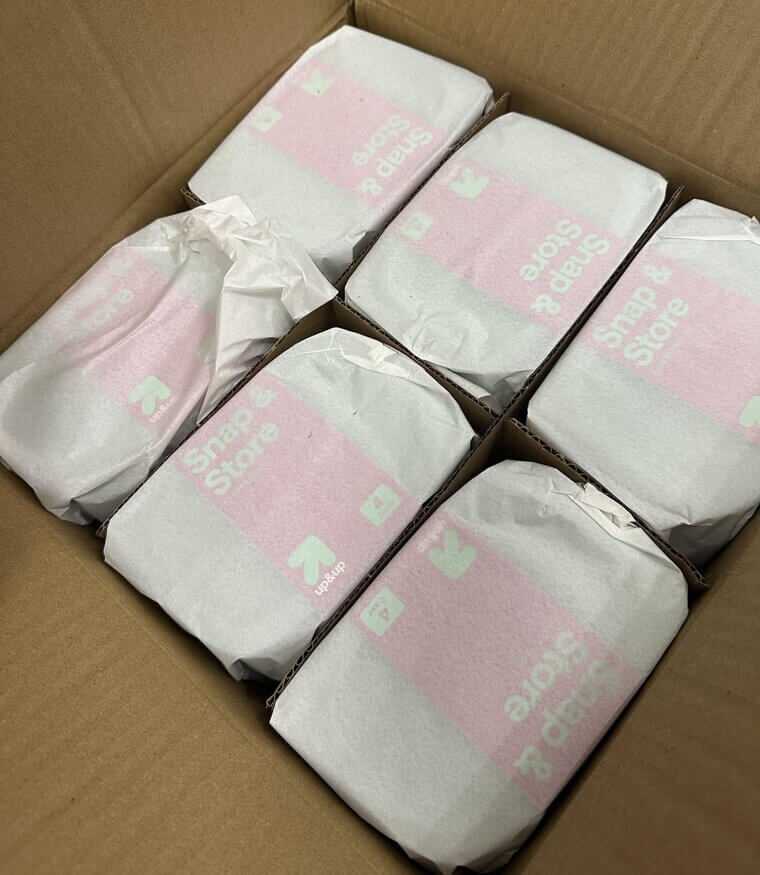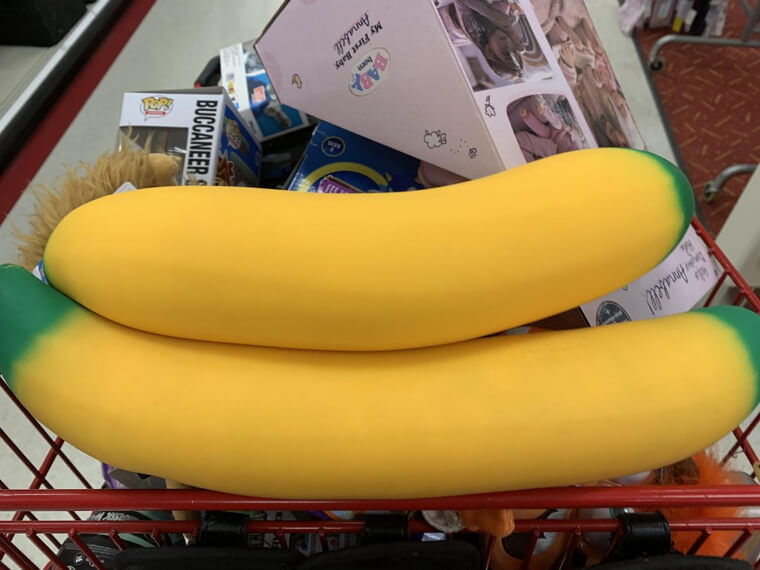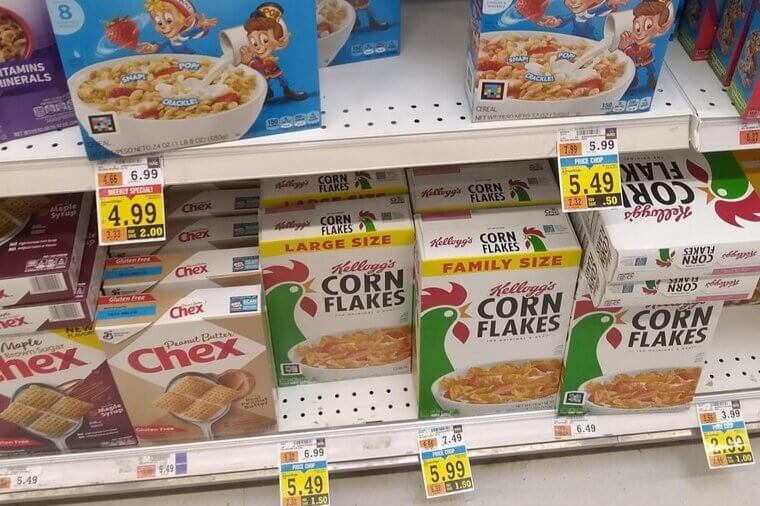Perishable Items Go Bad Long Before You Use Them
Bulk buying is great for products that last forever, but many shoppers make the mistake of buying giant quantities of perishable foods. Huge bags of salad greens, family sized fruit packs, and giant tubs of dairy products often spoil before anyone reaches the halfway point. People get ambitious, imagining healthy meals for the week, but real life rarely matches the plan. The larger the package, the harder it is to finish before it becomes unusable. When food spoils, the savings vanish instantly. Older shoppers especially know that throwing away food feels worse than overspending. Bulk perishables are only a good deal when you are absolutely sure you will eat them quickly. Otherwise the trash can becomes the real final destination. In many households, buying smaller portions more frequently saves more money than committing to massive quantities.
Unit Prices Can Fool Even Smart Shoppers
Bulk buying sounds simple: more product, less money. But stores know shoppers love a good bargain, so they quietly play with unit pricing. In many cases the larger package is only pennies cheaper per ounce, and sometimes it is not cheaper at all. Those giant bottles and family sized boxes look impressive, which tricks the brain into feeling like a deal has been scored. Shoppers often throw bulk items in their carts without doing the math because the big packaging makes everything feel economical. People also tend to buy more variety than they would normally choose, thinking bulk equals value. Once home, they realize the savings were illusionary. The truth is that bulk does not guarantee a real discount until you compare unit prices carefully. Older shoppers who remember when bigger always meant cheaper are often surprised that modern bulk shopping requires a calculator more than a cart.
Storage Space Becomes Its Own Hidden Expense
Buying a twelve pack of paper towels feels harmless until you try to find a place to put them. Bulk items demand space, and space is not free. They crowd closets, cupboards, and basements. People with limited storage end up buying bins, shelves, or plastic containers just to manage the clutter. That extra spending chips away at the savings bulk purchases promise. Some shoppers even rent small storage spaces for overflow items, which completely cancels out any financial gain. Bulk goods also get tucked away in places where they are forgotten, which means you may buy replacements before finishing the first batch. The end result is that storage becomes a secondary cost nobody mentions. People often assume bulk buying is the cheapest route, but the cost of making room for all that product can undercut the entire plan.
Bulk Goods Encourage Overuse
When you have a mountain of something, you tend to use it more freely. With a giant bottle of laundry detergent, people pour bigger cups. With a thirty pack of snacks, kids plow through them faster than ever. Shampoo, dish soap, cleaning wipes, and even toilet paper get consumed at a quicker rate simply because abundance makes people less careful. This phenomenon is well documented and surprisingly powerful. When we think something is plentiful, we treat it casually. The end result is that you may go through bulk goods faster than the exact same products in smaller packages. The supposed long term savings disappear because consumption increases. Bulk buying can unintentionally train people to be less conservative with everyday items. Once families recognize this pattern, they often realize their bulk shopping habit is not saving nearly as much as they hoped.
Membership Fees Cut Into the Savings
Many bulk stores require a membership fee, and while the cost does not seem high at first, it adds another layer to the math. You must save more than the membership cost each year just to break even. Add transportation costs and impulse purchases and the balance can shift quickly. Older shoppers who track budgets carefully often discover that they are not actually saving enough to offset these fees. Some people buy memberships hoping the commitment will motivate them, yet they shop infrequently. When the renewal arrives, the math reveals the truth. Bulk purchases can be helpful for large families, but solo adults or couples often find the savings too modest to justify the annual cost. Memberships are useful only if you truly commit to regular, strategic shopping.
Impulse Buys Multiply When Products Look Like Deals
Bulk stores design their layout to encourage impulse purchases. There are giant tubs of snacks, oversized jars of sauces, and gallon sized condiments you never knew existed. When everything is packaged to look economical, shoppers get swept up in bargain fever. Many people walk in for basic items and walk out with a trunk full of unplanned purchases. These impulse buys often go unused because the novelty wears off. The money you saved on toilet paper vanishes the moment you grab a six pack of gourmet dips you do not really need. Older shoppers are especially familiar with this trap after decades of clever marketing. The belief that everything in a bulk store is automatically a deal can turn frugal shoppers into impulsive ones. In the end, impulse spending often outweighs any true savings.
Transportation Affects the Total Cost
Driving across town to reach a bulk store is a cost many shoppers forget to include. Extra mileage, gas prices, and wear on the car quietly add up. If bulk trips are infrequent, the cost may be small. But for people who shop weekly or biweekly, transportation becomes a real part of the budget. Older adults who are careful about mileage often notice that bulk trips do not always justify the fuel required. People assume that saving a few dollars on food outweighs the transportation cost, but sometimes the numbers say otherwise. If your nearest bulk store is far away, the savings shrink fast. Convenience may be the real deciding factor. Without considering gas and time, bulk buying can appear more profitable than it truly is.
Packaging Waste Grows Dramatically
Bulk purchases often come with excessive packaging, from oversized plastic bags to thick cardboard boxes. While it may not hit your wallet immediately, it adds costs in other ways. Households must handle the increased trash, buy more garbage bags, or pay for extra collection. People with limited storage end up breaking down packaging constantly, which adds work and clutter. Older shoppers attentive to waste often feel that bulk packaging becomes more trouble than it is worth. Waste reduction is becoming more important, and bulk items do not always help that goal. Large sizes can lead to more environmental waste even if they reduce cost per ounce. The savings may be real, but the impact on your trash bin can be surprising.
Large Sizes Limit Product Flexibility
Bulk buying locks you into a product for a long time. If you buy a gallon of hot sauce and then realize you do not like it as much as you thought, you are stuck. Food preferences change, and products sometimes disappoint. Smaller purchases let you experiment without commitment. Bulk buys require long term dedication. If you change your diet, develop a sensitivity, or simply get tired of the taste, the leftover product becomes waste. Older shoppers who value variety often find bulk items restrictive. Once the novelty wears off, the product becomes a burden rather than a bargain. This is especially common with snacks and condiments. Saving money is harder when you are stuck with a large quantity of something you no longer want.
Bulk Buying Helps Most When Used Strategically, Not Automatically
Bulk goods can save money, but only when chosen carefully. Items with long shelf lives, consistent usage patterns, and clear unit price advantages offer the best value. Toilet paper, cleaning supplies, and some canned goods often qualify. Perishables, novelty items, and products with unpredictable consumption rarely do. The key is intention. Older shoppers who understand their habits save more by choosing bulk only for items they truly use often. Without strategy, bulk buying becomes clutter, waste, and unnecessary expense. The idea that buying bigger always saves money is a myth that falls apart once you look closely. The truth is simple. Bulk buying can help, but only when used with caution and awareness.

